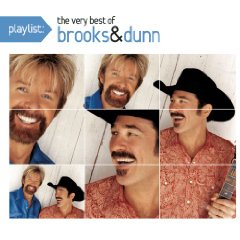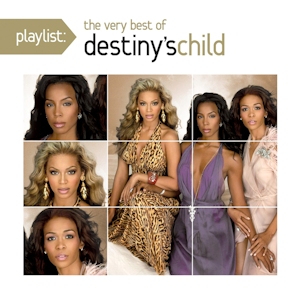A playlist is a list of video or audio files that can be played back on a media player in a desired order.
Contents
Playlist may also refer to:
A playlist is a list of video or audio files that can be played back on a media player in a desired order.
Playlist may also refer to:
Mix, mixes or mixing may refer to:
Godfather most often refers to a male godparent in the Christian tradition.

Samurai Champloo is a 2004 Japanese historical adventure anime television series. The debut television production of studio Manglobe, the 26-episode series aired from May 2004 to March 2005. It was first partially broadcast on Fuji TV, then had a complete airing on Fuji Network System. It was licensed for North American broadcast on Adult Swim, and for commercial release first by Geneon Entertainment and later by Crunchyroll. It was also licensed for English releases in the United Kingdom by MVM Films, and in Australia and New Zealand by Madman Entertainment. A manga adaptation was serialized in Monthly Shōnen Ace during 2004, later released in North America by Tokyopop the following year.
Departure, Departures or The Departure may refer to:
Legacy or legacies may refer to:
The Beginning may refer to:

Hits - also commonly known as The Hits Album - is a long-running compilation album series containing contemporary chart music. It originally ran in the United Kingdom and parts of Europe for over twenty years from 1984 until 2006. It was compiled as a joint venture, variously between the compilation arms of the Sony Music, RCA/BMG, and Warner Music groups to rival the Now That's What I Call Music series that had launched a year earlier in 1983, compiled by rival companies EMI and Virgin. Initially, the Hits brand was arguably as popular as its main rival and all of the first eight volumes achieved at least a platinum BPI award, with several of the very early albums going multi-platinum.

Jun Seba, better known by his stage name Nujabes, was a Japanese record producer, audio engineer, DJ, composer and arranger best known for his atmospheric instrumental mixes sampling from hip hop, soul, and jazz, as well as incorporating elements of trip hop, breakbeat, downtempo, and ambient music.

Legacy Recordings is an American record label that is a division of Sony Music. Formed in 1990 after Sony's acquisition of CBS Records, Legacy originally handled the archives of Sony Music-owned labels Columbia Records and Epic Records. In 2004, under the Sony BMG joint venture, the label began to manage the archives of RCA Records, J Records, Windham Hill Records, Arista, LaFace, Jive, and Buddah Records. Legacy Recordings also distributes Philadelphia International Records and the catalog of recordings produced by Phil Spector. It is not related to the defunct British independent label Legacy Records.
An impression is the overall effect of something.
A battle cry is a yell or chant taken up in battle.
Essential or essentials may refer to:
Sidetracked may refer to:

Playlist: The Very Best of Brooks & Dunn is a 2008 compilation album by Brooks & Dunn. It is part of a series of similar Playlist albums issued by Sony BMG, the parent company of Brooks & Dunn's label, Arista Nashville. The album features 10 of Brooks & Dunn's singles. "Best of My Love" was originally included on Common Thread: The Songs of the Eagles, "Against the Wind" on the King of the Hill soundtrack and "I Ain't Living Long Like This" on I've Always Been Crazy: A Tribute to Waylon Jennings, while "The Fightin' Side of Me" was previously unissued. "Only in America" is a live performance from Farm Aid 2003.
Greatest Hits albums are compilations of successful, previously released songs by a particular music artist or band. For a list of such albums, see List of greatest hits albums.

Playlist: The Very Best of Suicidal Tendencies is a 2010 best-of compilation album released on Sony Legacy, featuring a collection of Suicidal Tendencies' music with the label.

Playlist: The Very Best of Dixie Chicks is the greatest hits album from American country band the Dixie Chicks. The album consists of twelve songs personally selected by the Dixie Chicks from their fourth through seventh studio albums. It was released in the United States on June 1, 2010. The group supported the album by touring with The Eagles in 2010. It is a part of Sony BMG's Playlist series. It was also re-released on Sony's midprice sub-label Camden entitled Wide Open Spaces: The Collection in 2012.

Playlist: The Very Best of Destiny's Child is the third compilation album by American R&B girl group Destiny's Child. It was released on October 9, 2012 through Columbia Records matching with the fifteenth anniversary of Destiny's Child's formation. The compilation contained fourteen songs from the group's repertoire consisting of four studio albums.
Force of Nature is a hip-hop DJ and production duo from Tokyo, Japan. The group is composed of members Kitazawa Ikuzumi, known by his stage name KZA, and Kento Sasaki, known by his stage name DJ Kent or The Backwoods. Known internationally for their DJ work as well as their production, the duo is also credited as part of the production team that scored the music for the anime series Samurai Champloo.
The music of the 2004 anime series Samurai Champloo, created by the studio Manglobe, was produced by a team of four composers drawn from the hip hop musical scene. They were Shinji "Tsutchie" Tsuchida of Shakkazombie, Fat Jon, Nujabes and Force of Nature. The musical direction was chosen by series creator and director Shinichirō Watanabe as part of his planned blending of hip hop culture with the anime's setting in the Edo period, additionally incorporating contributions from guest artists. The opening theme "Battlecry" was performed and co-written by Shing02, while the various ending themes were performed by Minmi, Kazami, and Azuma Riki. The final episode's ending theme was "San Francisco", licensed from the rapper band Midicronica.